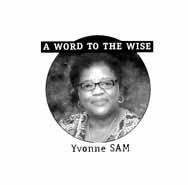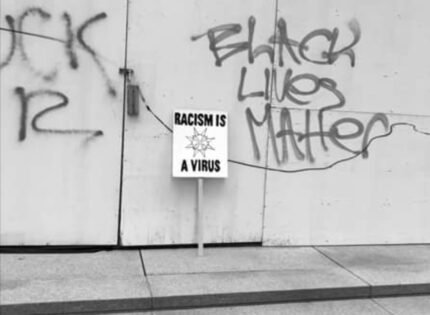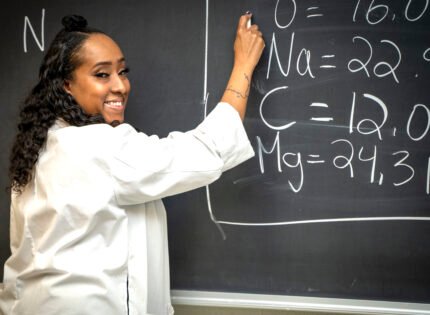
Well the historic election of the century has come and gone. What with all the drama! Thanks to providence, after a truly polluted campaign fraught with name calling, hyperboles, leaks, assaults, innuendos and vulgarity the American voting populace has chosen between a corrupt presidential candidate that took bribes and another that paid bribes to corrupt politicians.
Americans have gotten the government they deserve, confirmation of which can be found in Job 3: 25– For the thing which I greatly feared is come upon me, and that which I was afraid of is come unto me.
Do not dismiss the statement as being depressive, as there were Christians who found reasons to justify their vote for either of the nominees by quoting Biblical verses out of context, or by posing the evils of two lessors or lesser of the two evils argument.
However, the lingering question is: after the date what is our fate? What lays in wait? At the risk of sounding prophetic or the portender of doom and gloom: the future does appear bleak.
During the debates, the nominees were asked what they intended to do about the problems facing the Blacks, but then again as a people we did not make appropriate and commensurate demands in that regard. In other words, we heard a lot of rhetoric but no substantive reciprocal relationships with any of the candidates.
With topics ranging from the infamous email disposal, tax increase on the wealthiest, ending of Obamacare, putting more money in the pockets of the average American, the humanitarian crisis in Aleppo, Syrian refugees, to the most important aspect in selecting a Supreme Court judge, there was only one question pertaining to Black folks and it came from a Black man CNN’s Don Lemon. He selected the ridiculous question, “Do Black lives matter ‘or’ do all lives matter?
The 2016 presidential campaign has denigrated and belittled the Black Lives Matter movement, further reminder that although progress has been made, race still mattered.
For Blacks it should matter very little who lives at 1600 Pennsylvania Avenue, although we behave as though we possess the power to determine our own political destiny rather than accepting the fact that the inhabitants therein have total control.
The political problem now facing the Black community is the blatant lack of political involvement beyond voting, and a displayed failure to build political power based on an economic power base and our reliance on political symbolism over political substance.
Now that a Black president will soon be relegated to history, our political engagement must be pragmatic and not some simplistic game where Blacks are ignored once their so-called precious, much- sought- after votes have fulfilled its objective. The White House irrespective of its occupants should not be symbolic of the Right House, while Blacks are still faced with staggering unemployment, in addition to income and wealth inequality.
Permit me to advance a little further that while politics is a reality, Blacks must create a new political reality for themselves. Which means setting political agendas that serve our purpose and primary interests, and not those of either party- Democrats or Republicans.
It matters little who has won. The time has come to switch from politics to economics. Now we must send to the world at large a clear message: no more BLAXPLOITATION we are putting BLACKONOMICS in motion.
For mental illness cases the police should be replaced by a nationwide on-call Mental Health Tactical Team
Blacks, Police and Mental Illness
Yvonne Sam
Just think of this as you walk down the street, at least one out of every four or five people you pass is suffering from some form of mental illness.
Like so many millions of television viewers, my emotional psyche was rocked to its very core on hearing of the needless killing of yet another Black individual, again at the hands of those sworn to protect and serve.
Reports state that the victim, Deborah Danner, was known to the New York Police Department as having a mental illness, and on the night of her demise they had been called to take her to the hospital as had been done in the past.
This pattern of lethal harm inflicted on Black people with mental illness is far from being solely an American problem as for decades the deaths of mentally disturbed individuals by the hands of police have also plagued the Canadian scene.
It is blatantly apparent that on account of the double stigmatization at the crossroads of blackness and mental health, death is too often the police’s solution to distress. To name a few, Abdirahman Ali, Christopher Reid, Alain Magoire, Andrew Loku, Michael Eligon, all unarmed Black men in the midst of mental crises, all now dead.
The Police are not suited to fit the bill when dealing with the mentally ill.
Even if more training is given to law enforcement agencies the problem will remain unaltered, and continue to stare at us from coffins and graves. Sometimes the mere presence of an officer in uniform, the loud sirens, flashing lights, loud aggressive commands can all serve as the catalyst in intensifying the psychosis of someone in crisis.
Granted that officers are trained to be authoritative and take immediate control of a situation, those suffering from mental illness would benefit from a different approach altogether. The basic problem lies in the fact that when families recognize their loved ones as having a mental health crisis, they feel that the only person to call at any time, and who will respond quickly, is the police. Training is not gaining, and the families become ultimate losers when police come.
A Mental Health Tactical Team is the answer to this age-old woe
The police should be relieved of such duties and replaced by a nationwide on-call Mental Health Tactical Team, comprising trained and fully qualified mental health professionals, trained in the de-escalation of situations involving persons with a known mental illness.
Operating in a system similar to 911, the phone number of the team would be made available nationwide, with an established database for prompt client identification. The team would work in close conjunction with the police, doctors, community health agencies, hospitals, prisons and psychiatric institutions so that new patients are immediately listed and the possibility of marginalization averted.
Peelian principles of old that went somewhat cold
In 1829 Sir Robert Peel, credited with the Metropolitan Police Act, outlined nine principles of policing which, if followed, would produce stronger arms of the law and greater public respect.
Rule 1 states that the basic mission for which police exist is to prevent crime and disorder.
Rule 2 stipulates that the ability of the police to perform their functions is dependent upon public approval of police existence.
Rule 9 states that the test of police efficiency is the absence of crime and disorder, not the visible evidence of police action in dealing with them.
The Peelian advice has been long given, frequently disobeyed, with resultant loss of human lives. No longer can the public sit by and allow ill equipped and undertrained police officers to cause any further harm.
We cannot keep repeating the same thing over and over again expecting a different result each time. Let law enforcement agencies perform the tasks for which they have been trained and are best suited, and bring in the professionals void of weaponry, to deal with the mentally ill whom they fully understand.















